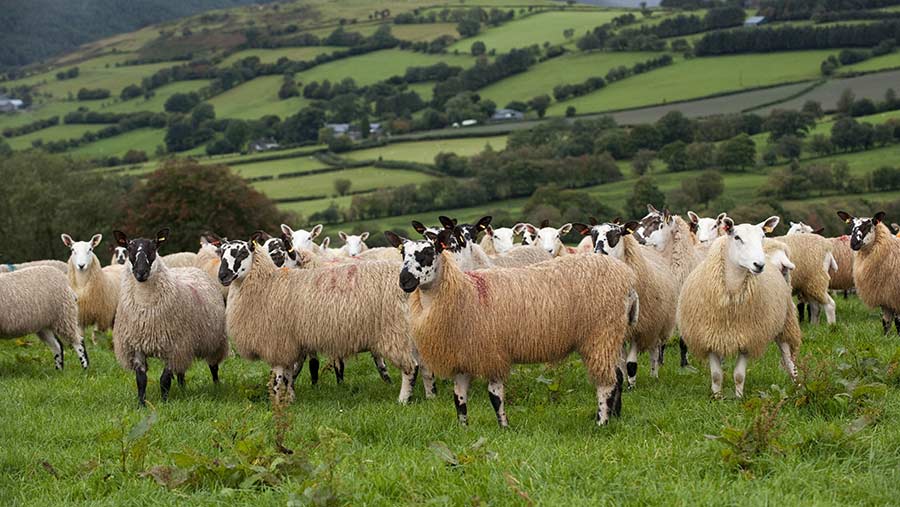Welsh farmers rely on BPS to make a profit, survey shows
 © FLPA/Shutterstock
© FLPA/Shutterstock Many hill sheep farms in Wales would not survive without the Basic Payment Scheme (BPS), new farm income figures show.
The payment, together with other subsidies and diversified income, contributed to about 45% of turnover and 242% of profits for hill sheep farms, an analysis of Welsh farm incomes reveals.
Aberystwyth University conducted the 2018-19 survey across a random sample of 550 farms across Wales.
See also: Welsh BPS farm subsidy system to stay at least until 2022
The Welsh government is planning to start phasing out the BPS after the 2021 payment, replacing it with more targeted support.
After rent and finance charges were deducted, the results showed that the average profit for hill sheep farms was £158/ha, with income from the BPS accounting for £243/ha.
BPS reliance
The reliance of farms in all sectors on the BPS and other subsidies was highlighted by survey director Tony O’Regan.
“It is difficult to see how many Welsh farms can be profitable without relying on non-farming income and post-Brexit support payments,” he said.
For cattle and sheep farms, profit per hectare of the top performers was more than three times that of the average, which highlights a widening gap after last year’s survey put it at double.
Meat producers showed similar variability, with lamb ranging from making a 29p/kg profit to losing 91p/kg.
It is a similar picture for dairy farms, with the top performers making a net margin of 10p/litre more than the bottom third.
Beef price concerns
But the figures show a worrying situation for suckler beef production, where performance ranged from a loss of 14p/kg to a loss of 166p/kg.
Although beef had sold well for the first part of 2018, prices had dipped midway through the year because more cattle were offered for sale due to forage shortages and had continued to spiral.
Relatively static milk prices had brought stability to dairy farms, but Mr Regan said producers were still leaving the industry, in part as a result of the stress and expense of bovine TB.
The survey results did not take into account farm labour costs.
